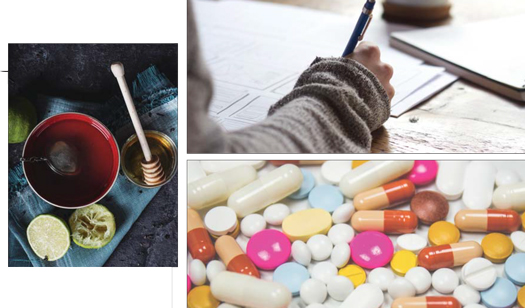Monitoring medications and health during emergencies
By Shawntell Muhammad | Last updated: Dec 14, 2017 - 2:45:16 PMWhat's your opinion on this article?
“Allah is going to use the wind, the rain, the tornado, the hurricane, the fire, hail, sleet, snow. Watch the weather.” --The Honorable Minister Louis Farrakhan
We all are aware that natural phenomena occur. Earthquakes, extreme heat, wildfires, blizzards, hurricanes, tornadoes, ice storms and snowstorms can all cause our lives to change tremendously.
Being prepared as best we can is the most responsible and loving act we can do for ourselves and our families.

|
Teenagers and adults should be CPR (cardiopulmonary resuscitation) certified, at least three days (one month to be on the safe side) worth of food and medicine should be stored in the home, car, workplace, school, and the same goes for water (one gallon per person per day).
People dependent on medication for various conditions should make sure their medication has not expired, check and rotate periodically.
Diabetics should keep an insulated carrying case for their insulin and meter. Insulin and blood glucose meters are sensitive to cold. If insulin freezes, it is rendered permanently useless, and meters can stop functioning in very cold temperatures. Diabetes supply lists will contain: extra insulin, syringes, extra glucose meter, test strips, lancets and lancing device, insulin pump supplies, extra batteries for your blood glucose meter and pump, a glucagon kit, ketone test strips, alcohol wipes, and glucose tablets and gel.
Chronic kidney disease patients who rely on dialysis centers should keep these staples on hand at all times. Sometimes during and after natural disasters leaving our homes is not an option, and in other cases the hospitals are overwhelmed and may not be able to provide dialysis treatments. Staples that will help sustain those living with chronic kidney disease during a disaster: dry milk or evaporated milk, two gallons of water, two packages of fruit flavored drink, two bottles of soft drink, four ounce boxes of low potassium fruit juice (apple, grape), boxes of single serving cereal (no Raisin Bran), sugar packets, 12 ounce cans of low potassium fruit bowls (peaches, pineapples, applesauce, no raisins), eight small cans of chicken or turkey, one small jar of honey, three small jars of mayonnaise, one box of vanilla wafers and six bags of mints.
Visit www.davita.com/kidney-disease for information on the daily menu plan for chronic kidney disease during a natural disaster.
Medical devices such as home dialysis machines, oxygen equipment, motorized wheelchairs, and nebulizers, all requiring electricity will not be operable without proper preparation. Indoor generators that do not use gas and are quiet, are safe and a good source of power, should be researched and purchased.
Depending on which generator is used, the source of power comes from the sun, car cigarette lighter plug and/or battery clamps with the car battery. To learn more about indoor generators safe to run indoors visit, portablegeneratormaster.com.
Nursing mothers should always pump extra breast milk and freeze it. According to the mayoclinic.org, freshly expressed breast milk can be stored in a deep freezer for up to 12 months. However, using the stored milk within six months is optimal. Make sure to label the milk with date of expression. Use thawed milk within 24 hours after opening.
Sources and information for this article were obtained from diabetesselfmanagement.com, cdc.gov, kidneybuzz.com, mayoclinic.org and adata.org.
(Shawntell Muhammad is owner and founder of Organic Nourishment and can be reached via organicnourishment.com. Talk to your doctor about preventative health measures and recommendations in preparing for emergencies.)
INSIDE STORIES AND REVIEWS
-
-
About Harriett ... and the Negro Hollywood Road Show
By Rabiah Muhammad, Guest Columnist » Full Story -
Skepticism greets Jay-Z, NFL talk of inspiring change
By Bryan 18X Crawford and Richard B. Muhammad The Final Call Newspaper @TheFinalCall » Full Story -
The painful problem of Black girls and suicide
By Charlene Muhammad -National Correspondent- » Full Story -
Exploitation of Innocence - Report: Perceptions, policies hurting Black girls
By Charlene Muhammad -National Correspondent- » Full Story -
Big Ballin: Big ideas fuel a father’s Big Baller Brand and brash business sense
By Bryan Crawford -Contributing Writer- » Full Story






 Click Here Stay Connected!
Click Here Stay Connected!








